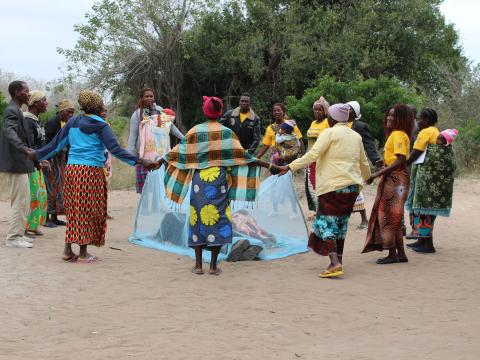Turning the Tide on Malaria: Mozambique Calls for Greater Investment in Social and Behaviour Change

Mozambique is intensifying efforts to combat malaria, one of its most pressing public health threats. The disease disproportionately affects pregnant women and children under five, placing Mozambique among the top five countries globally with the highest number of reported malaria cases.
The fight is further complicated by external challenges, such as climate change and related shocks, which are beyond the control of health authorities. Despite these obstacles, the government and its public and private partners believe they have identified a critical strategy to shift the course of this battle: Social and behaviour change (SBC).
World Vision Mozambique leads a consortium under the Program to Accelerate and Strengthen the Quality of Malaria Control Interventions in Mozambique. The organization has spearheaded the distribution of insecticide-treated mosquito nets and, in the past year alone, carried out community awareness campaigns that reached more than 7 million people across 90 of the country’s 154 districts.
“We call for additional efforts to promote Social and Behaviour Change as a key strategy in the fight against malaria in Mozambique,” said Gerito Augusto, Technical Project Lead at World Vision Mozambique, “Together, we can dream of a future without malaria, where no child loses their life to a mosquito bite,” added Gerito.
The call was echoed by the Minister of Health, Ussene Isse, who stressed: “The first step to prevent malaria is in our own hands, through consistent and effective use of prevention methods.”
Turning vision into action, the partners have launched a series of radio dramas in several local languages, to be broadcast soon in the central and northern regions, Mozambique’s most populous and malaria-affected areas. These radio dramas aim to influence social norms and behaviours related to malaria prevention.
Progress Despite the Odds
Although Mozambique remains one of the countries with the highest burden of malaria, the Ministry of Health reports encouraging progress. In recent years, the number of new malaria cases registered in health facilities has decreased by 12%, and malaria-related deaths have dropped by 4%.
According to the World Vision technical team, these figures could be even more encouraging, potentially a 20% reduction, were it not for external factors like climate change that limit the impact of current interventions.
Promising Approaches in Malaria Prevention
Authorities are investing in innovative and proven strategies that promise to further reduce malaria incidence. These include seasonal malaria chemoprevention for children, the use of next-generation mosquito nets, and the expansion of pilot malaria vaccination programmes.
These efforts are supported by the Global Fund and implemented in partnership with local and international organisations, including the Foundation for Community Development (FDC), Food for the Hungry Association (FHA), and Aid for Development from People to People (ADPP).